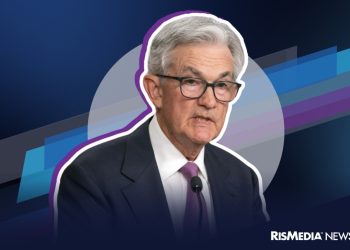Berkshire Hathaway HomeServices recently released results of its latest Homeowner Sentiment Survey indicating a significant split in the way real estate consumers perceive the Federal Reserve’s raising of its benchmark interest rate and the subsequent impact on mortgage rates.
Existing homeowners expressed indifference to the notion of a lift in mortgage rates as a result of the Fed’s action. By contrast, 62 percent of prospective homeowners – a survey group composed mainly of millennials and Gen-Xers – says rising mortgage rates would make them feel anxious about their current financial situations.
It’s been nearly 10 years since the Fed raised its benchmark rate, which stands near zero as part of the Fed’s effort to stimulate the U.S. economy. Accordingly, mortgage rates, which move in response to the fed funds rate, have hovered at or near historic lows for years. Yet in the survey, 67 percent of prospective homebuyers categorized the level of today’s mortgage rates as “average” or “high.”
“The Fed is seeing more people going back to work, and with the expectation of job growth for America it feels comfortable with its intent to raise rates,” says Berkshire Hathaway HomeServices President Stephen Phillips. “But the reality is that an entire generation of first-time buyers has never experienced a meaningful rate increase; this is a new and unfamiliar phenomenon to them.”
Should mortgage rates rise in response to a boost in the fed fund rate, many prospective homeowners says they would have to alter their home searches and 51 percent would adjust their savings pace. In addition, exactly half of prospective homeowners believed they would experience more difficulty affording their ideal home. Current homeowners, whose ranks are mostly Boomers and Gen-Xers, says that increased mortgage payments would mean more personal sacrifices in areas such as family vacations, home improvements and shopping.
Fed policymakers have says the pace at which they’ll raise interest rates will be gradual – an increase of a quarter of a percentage point is typical. A similar rise in mortgage rates would add about $43 a month to a hypothetical $300,000, 30-year mortgage with a 3.75 percent rate, explained Gino Blefari, CEO of HSF Affiliates. “A bump in mortgage rates has more bark than bite,” he says. “The average American spends about twice as much every month on coffee.”
A majority of current homeowners (59 percent) and half of prospective homeowners believed interest rates are holding steady. Lower interest rates remain the top reason why many survey respondents view the current housing market favorably.
Respondents also identified factors they believed are driving U.S. real estate forward. Increased residential construction and increased construction in urban areas offering more housing choices closer to work topped the list. Respondents also indicated that the housing market is benefiting from an increase in millennial buyers and by a boost in housing inventory; the latter factor has hamstrung real estate in many markets since the downturn.
“As always, our agents and the industry as a whole must take great care to educate buyers and sellers about the real estate process, which includes mortgage rates,” says Blefari. “A Fed rate increase may grab people’s attention, yet the cost of borrowing money to buy a home remains historically low by all measurements. From our perspective, mortgage rates will remain low for years to come, and that’s good for consumers and the real estate market.”
For more information, visit www.berkshirehathawayhs.com.










